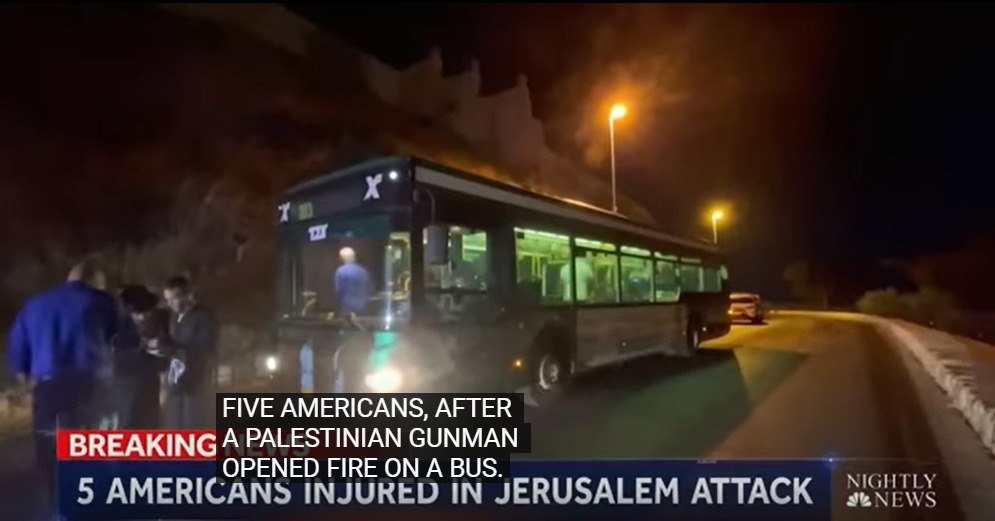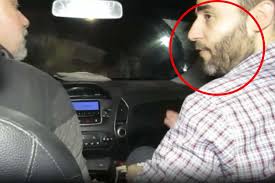The attack this week in the Old City of Jerusalem, in the area of the Western Wall, during which a terrorist shot and wounded eight Israeli citizens, two of them in a serious condition, once again brought terrorism back to the capital of Israel and put the obvious question on the top of the agenda of whether we are once again facing the beginning of a new terrorist wave of individual attacks or as the security forces call it the " lone wolves" phenomenon.
The Terrorist who is Amir Al-Sidawi a 26 year old resident of East Jerusalem
, and a former criminal prisoner, turned himself in to the police. From his first investigation by the Shin Bet, it appears that he acted alone and did not belong to any terrorist organization.
Al-Sidawi was influenced by the Israeli military operation in Gaza Strip and the operation to assassinate 3 terrorists by the IDF last week in the city of Nablus, including the wanted terrorist Ibrahim Al-Nabulsi.
The security establishment fears that the attack in Jerusalem will serve as a model for other Palestinians youth and "infect" others to
carry out stabbing attacks and even shooting attacks in Jerusalem and other places in Israel, it turns out that the residents of East Jerusalem do not have much difficulty obtaining weapons on the criminal black market.
That is why the Jerusalem Police will beef up its forces in Jerusalem in preparation for what may happen.
It is difficult to fight this type of terrorism, especially from an intelligence point of view, the individual terrorists take precautionary measures, they are already aware that they are being monitored on their social media and cell phones, they reduce the circle that knows about their intentions to launch an attack and sometimes do not reveal their intentions until the last moment and do not share it with anyone.
The Palestinian anger in the territories is enormous and is looking to break out, the assassination of the 3 terrorists in Nablus by the IDF was perceived by the Palestinians as a provocation by Israel and a violation of the cease-fire agreement between it and the Islamic Jihad in the Gaza Strip.
During the IDF operation in the Gaza Strip, 49 Palestinians were killed, of which only 12 were fighters of the Islamic Jihad and the rest were civilians.
Last month, the IDF killed in the city Nablus 5 terrorists of the
Fatah movement who were involved in shooting attacks at IDF forces and Joseph's tomb in the city.
And on Tisha B'Av day, during the IDF's operation in the Gaza Strip, hundreds of Jews went up to the Temple Mount under heavy police security.
The incitement system of the Palestinian terrorist organizations uses these events to incite the younger generation against Israel mainly through social media.
The terrorist organizations in the Gaza Strip praised the terrorist who carried out the "heroic attack" in Jerusalem, for them, the attack is a severe blow to Israel in the heart of its capital and a proof that the IDF cannot suppress the idea of "resistance".
They are convinced that the Israeli intelligence system cannot detect ahead of time and thwart attacks by lone terrorists.
The attack in Jerusalem damaged the sense of victory among the Israeli ctizens following the successful operations of the IDF in the Gaza Strip and the city of Nablus.
The latest attack in Jerusalem once again remind us the wave of attacks by individual terrorists that began in 2015 with the stabbing attack carried out by the terrorist Mouhand Halabi in the Old City of Jerusalem. A phenomenon that received the nickname "Intifada of the Knives"
Although no terrorist organization is behind the latest attack in Jerusalem, the Islamic Jihad claims that this is further proof that the idea of
Its leader Ziyad Al-Nakhallah of "Unity of Fronts" has been assimilated into the Palestinian street.
Therefore, while the fragile cease-fire in the Gaza Strip continues , the terrorist organizations are very encouraged by the success of the attack in Jerusalem, and they will use their incitement system to push the young Palestinian generation to carry out more revenge attacks.
The IDF's major arrest operation that began on March 31 of this year after a series of attacks in Israeli cities continues, but it is certainly possible that the IDF will be forced to refresh it in order to stop further attacks in light of the latest attack in Jerusalem.
It is difficult to assess now where things are going, will the terrorist organizations again try to focus on Jerusalem? Are they trying to provoke a wave of revenge attacks or is this a spontaneous outburst of rage?
Israel's security forces can not thwart any terrorist attack and will have to confront every terrorist on the ground, what is important now is that Israel's security forces forcefully stop any attempt to heat up East Jerusalem through terrorist attacks by individual young people.
The security forces must prepare for the possibility of a renewal of the lone terrorist phenomenon, the anger in the Palestinian street is great and the frustration is growing, Israel must not show signs of weakness.
Yoni Ben Menachem
Senior Middle East Analyst




